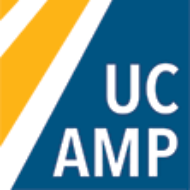
Each year, the annual conference provides opportunities to discuss emerging issues, exchange information on policies and practices that are working, and provide informed feedback to higher levels of administration. Touring the host campus each year has served to broaden managers’ appreciation for the diversity of the university’s 10-campus system.. UC San Diego was the first to include a campus tour as an integrated part of the conference schedule in 1988. These tours typically have a reception that is hosted by the Chancellor or Vice Chancellor of Academic Affairs.
AMP History
The Administrative Management Professionals (formerly known as The Academic Business Officer Group (ABOG)) was originally organized by Laboratory Business Officers (LBOs) Ken Faunce at UCB, Tom Rolinson at UCSF, and Rodney Rose, Physics Department, UCI. They decided it would be useful to meet and talk about common challenges and solutions. They met annually, at first alternating between UC Conference Facilities at Arrowhead and Asilomar, and the group grew. At these meetings, they invited administrators from the campuses and UCOP to talk with them and work together on common topics, challenges and goals. For many years the group remained stable at 100 participants. At that time, everyone was a top administrator with laboratory responsibilities in a scientific department. Over the years other department administrators from other disciplines joined and conferences held in the past 5 years have hosted 150-200 participants. Through the years ABOG has increased its visibility and credibility with UCOP and the networking of members from the various campuses has been a valuable feature of the annual conference.
ABOG was initially organized to provide a forum for academic department managers to develop more effective systemwide communication, share knowledge and expertise among campuses, and to provide essential networking opportunities. The intent has been to develop and maintain a collegial and professional relationship with all levels of university administration. This is the only formal (although rather informal) organization of these managers who serve pivotal roles in the administrative, personnel, financial and often public relations activities of the University.

